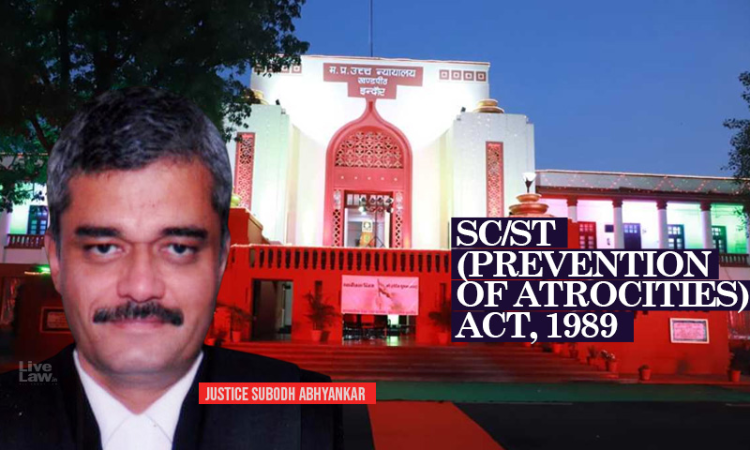Complainant's Caste Is Of Paramount Importance & Is 'Sine Qua Non' In A Case Under SC/ST Act: Madhya Pradesh High Court
Sparsh Upadhyay
17 Sept 2021 8:30 PM IST

Next Story
17 Sept 2021 8:30 PM IST
The Madhya Pradesh High Court on Tuesday observed that in a case under SC/ST Act, the caste of the complainant is of paramount importance and is a sine qua non and that it can't be assumed that the complainant would forget to mention in the FIR that the assailants had made aspersions against his caste.Holding thus, the Bench of Justice Subodh Abhyankar quashed charge under Section 3(2)(5A) of...
